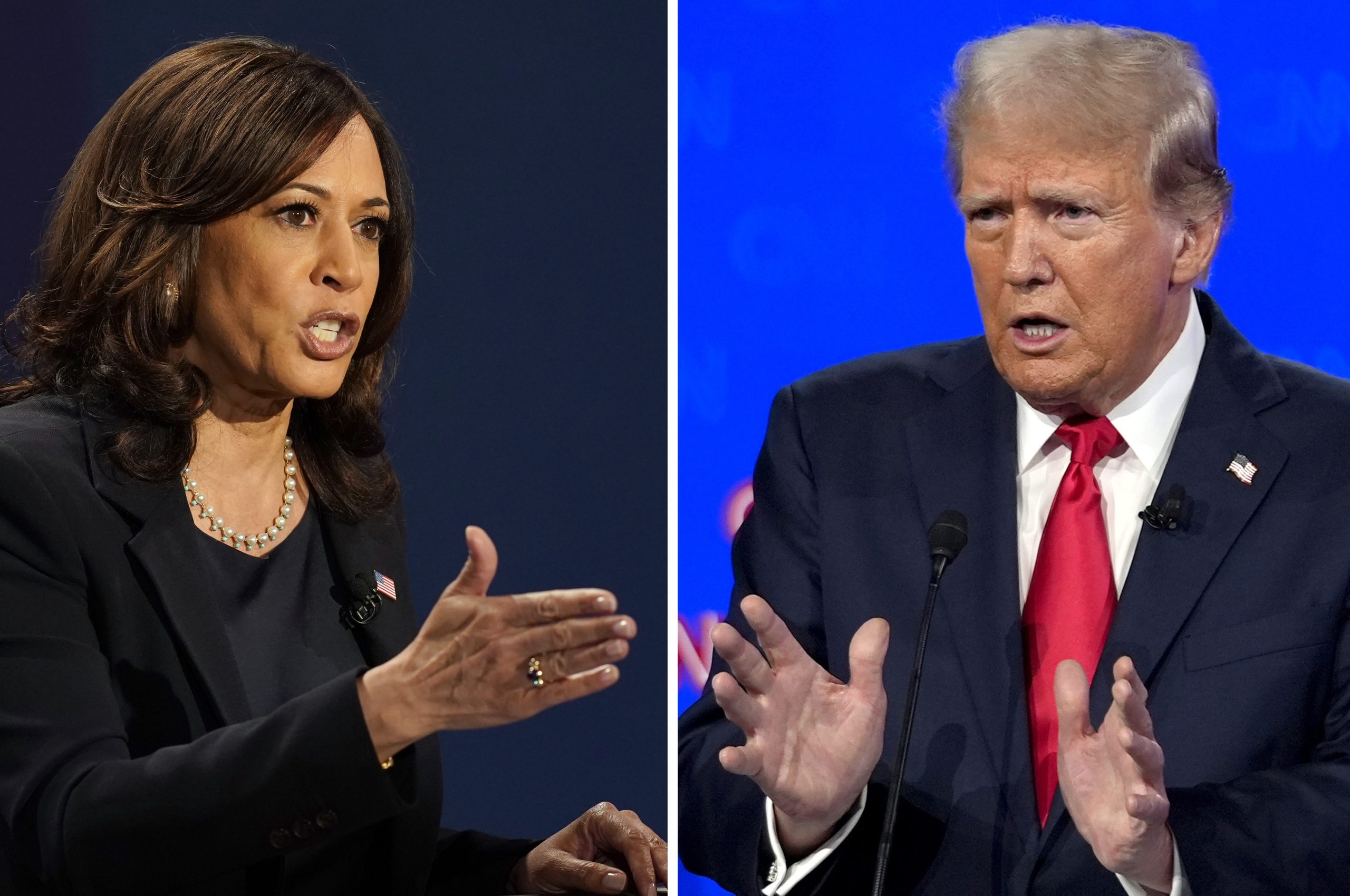America First Legal (AFL), a conservative watchdog organization founded by former Trump administration officials, has announced the launch of seven separate investigations into Vice President Kamala Harris’s record during her time in California government. The inquiries, which cover the period from 1990 to 2017, aim to scrutinize Harris’s conduct as San Francisco District Attorney, California Attorney General, and earlier state positions.
In its announcement, AFL described Harris as “one of the most radically progressive figures in modern American politics” and asserted that her actions in state office warrant renewed transparency and public examination. The group has filed requests for records and communications from California state agencies, seeking to determine whether Harris or her staff engaged in misconduct, favoritism, or political bias while serving in key legal roles.
“It is absolutely crucial that the public has access to the facts about Kamala Harris’ time in California government,” said Dan Epstein, Vice President of America First Legal. “Each step up the ladder of her career appears marked by improprieties or scandal. America First Legal will aggressively probe her former offices and fight to ensure the truth reaches the American people.”
Seven Areas of Inquiry
According to AFL’s press release, the investigations target seven distinct areas of concern, ranging from donor privacy violations to potential cover-ups of misconduct.
1. Alleged Failure to Comply with Federal Donor Privacy Laws
The first investigation focuses on Harris’s tenure as California Attorney General, when her office required nonprofit organizations to submit copies of their IRS Form 990 filings — including Schedule B, which lists donors who contribute at least $5,000 annually. The U.S. Supreme Court later ruled, in Americans for Prosperity Foundation v. Bonta (2021), that such disclosures violated First Amendment protections.
AFL contends that Harris’s office may have gone beyond constitutional overreach, potentially breaching 26 U.S.C. § 6103(p)(8)(A), which restricts the disclosure of federal tax return information to state officials unless certain privacy safeguards are enacted. The group alleges Harris sought donor information from ideologically opposed organizations without fully complying with federal confidentiality provisions.
AFL’s stated concern is that Harris “used her office to target political opponents,” though the group has yet to produce specific evidence showing misuse of the donor lists.
2. Immigration Policy and Enforcement Practices
The second investigation examines Harris’s record on immigration enforcement during her years as California Attorney General. AFL accuses Harris of interfering with federal efforts to remove undocumented immigrants with criminal records, pointing to her public opposition to the federal Secure Communities program — an initiative allowing Immigration and Customs Enforcement (ICE) to identify deportable offenders through fingerprint data.
Harris also defended San Francisco’s sanctuary city ordinance as San Francisco District Attorney, which limited cooperation between local law enforcement and federal immigration authorities. In a 2014 interview, Harris expressed her belief in comprehensive immigration reform, noting that California had “the largest number of undocumented people in the country.”
AFL further cited Harris’s decision to support a settlement allowing Rodney Quine, a transgender inmate serving a life sentence for murder, to undergo gender reassignment surgery at taxpayer expense — a move her office characterized as compliance with constitutional standards on prisoner treatment. The legal group alleges that Harris “prioritized political ideology over enforcement of federal law.”
3. Equal Justice and the Death Penalty Controversies
AFL’s third inquiry revisits Harris’s decisions not to pursue capital punishment in several high-profile cases during her tenure as San Francisco District Attorney. In 2004, Harris declined to seek the death penalty for David Hill, who fatally shot police officer Isaac Espinoza with an AK-47. The decision drew criticism from Espinoza’s family, the local police union, and prominent California Democrats including Senators Dianne Feinstein and Barbara Boxer.
AFL contends that Harris’s opposition to capital punishment resulted in unequal application of justice, particularly when defendants were members of minority groups or affiliated with gangs. A similar criticism was raised over her handling of Edwin Ramos, an MS-13 gang member and undocumented immigrant convicted of murdering a father and two sons in 2008. Harris sought life imprisonment rather than the death penalty in that case.
In defense of her approach at the time, Harris said her prosecutorial philosophy focused on “doing justice, not simply maximizing punishment.” She maintained that her office’s decisions were guided by the law and her long-standing opposition to capital punishment.
4. Conflicts of Interest and Early Political Ties
AFL’s fourth investigation addresses potential conflicts of interest stemming from Harris’s personal and professional relationship with Willie Brown, the powerful former Speaker of the California Assembly. During their relationship, Brown appointed Harris to two state boards — the Unemployment Insurance Appeals Board and the Medical Assistance Commission — positions that provided significant compensation.
AFL claims these appointments raise ethical questions about Harris’s early career advancement and whether she properly disclosed or recused herself from matters involving Brown’s interests. The organization has requested records from state ethics bodies to determine whether any formal disclosures or recusals were filed at the time.
5. Orange County Jail Misconduct Investigation
The fifth probe focuses on Harris’s handling of a 2015 corruption scandal involving misuse of jailhouse informants by Orange County sheriff’s deputies. Although Harris opened a criminal investigation into the allegations, her office did not file any charges before she left for the U.S. Senate in 2017.
AFL argues that the lack of action “reflected a broader pattern of ignoring misconduct within law enforcement institutions under her jurisdiction.” Supporters of Harris, however, have noted that prosecutorial decisions often hinge on evidentiary standards and cooperation from local authorities, and that her office did issue policy reforms following the controversy.
6. Gifts and State Ethics Inquiries
A sixth area of review concerns Harris’s interactions with the California Fair Political Practices Commission (FPPC). In 2015, the FPPC reviewed gifts and design work provided by Ken Fulk, a San Francisco interior designer whose firm performed more than $10,000 worth of work on Harris’s apartment. After questions arose, Harris retroactively paid Fulk for the services and the FPPC ultimately determined that no violation occurred.
AFL, however, has included this case in its probe list, asserting that it reflects “potential patterns of ethical irregularities” that warrant closer scrutiny of her personal and campaign finances during that period.
7. Alleged Misconduct and Retaliation Cover-Ups
The final investigation addresses Harris’s response to alleged misconduct within her own department. One cited case involves The People v. Efrain Velasco-Palacios, where a California appeals court found “outrageous government misconduct” after prosecutors falsified a transcript of a confession. Harris’s office appealed the ruling dismissing the indictment — a move AFL argues “defended prosecutorial misconduct rather than addressing it.”
AFL also pointed to the 2015 Masonic Fraternal Police Department scandal, in which a deputy director at the California DOJ, Brandon Kiel, was arrested for impersonating a police officer. Additionally, the organization referenced a sexual harassment settlement involving Larry Wallace, a longtime Harris aide, and his former assistant, Danielle Hartley, which was settled for $400,000 shortly before Harris entered the U.S. Senate.
AFL suggests Harris “failed to act upon credible complaints of discrimination and retaliation,” although her office at the time stated that the matter was handled in accordance with state procedures.
AFL’s Broader Legal Strategy
Founded in 2021 by former Trump adviser Stephen Miller, America First Legal has become one of the most active conservative legal advocacy groups in Washington. The organization has filed numerous Freedom of Information Act (FOIA) requests, lawsuits, and ethics complaints targeting current and former Democratic officials, often positioning itself as a counterbalance to the American Civil Liberties Union (ACLU).
The group’s latest move to investigate Vice President Harris underscores a broader effort to challenge what it views as “institutionalized double standards” within U.S. law enforcement and government ethics systems. Critics of AFL argue that such inquiries are politically motivated attempts to discredit opponents ahead of the 2024 presidential election, where Harris has emerged as the leading Democratic figure.
Conclusion
The outcome of AFL’s investigations remains uncertain. Many of the incidents cited have been publicly documented for years, and legal experts suggest that revisiting old administrative and prosecutorial decisions may yield limited results unless new evidence emerges. Nonetheless, the initiative reflects the intensifying political and legal scrutiny facing Vice President Harris as she continues to serve in the Biden–Trump transition era.
Whether these probes will produce actionable findings or primarily serve as a political flashpoint, they mark yet another chapter in the long-running debate over accountability, partisanship, and the boundaries of power in American public service.

Emily Johnson is a critically acclaimed essayist and novelist known for her thought-provoking works centered on feminism, women’s rights, and modern relationships. Born and raised in Portland, Oregon, Emily grew up with a deep love of books, often spending her afternoons at her local library. She went on to study literature and gender studies at UCLA, where she became deeply involved in activism and began publishing essays in campus journals. Her debut essay collection, Voices Unbound, struck a chord with readers nationwide for its fearless exploration of gender dynamics, identity, and the challenges faced by women in contemporary society. Emily later transitioned into fiction, writing novels that balance compelling storytelling with social commentary. Her protagonists are often strong, multidimensional women navigating love, ambition, and the struggles of everyday life, making her a favorite among readers who crave authentic, relatable narratives. Critics praise her ability to merge personal intimacy with universal themes. Off the page, Emily is an advocate for women in publishing, leading workshops that encourage young female writers to embrace their voices. She lives in Seattle with her partner and two rescue cats, where she continues to write, teach, and inspire a new generation of storytellers.









